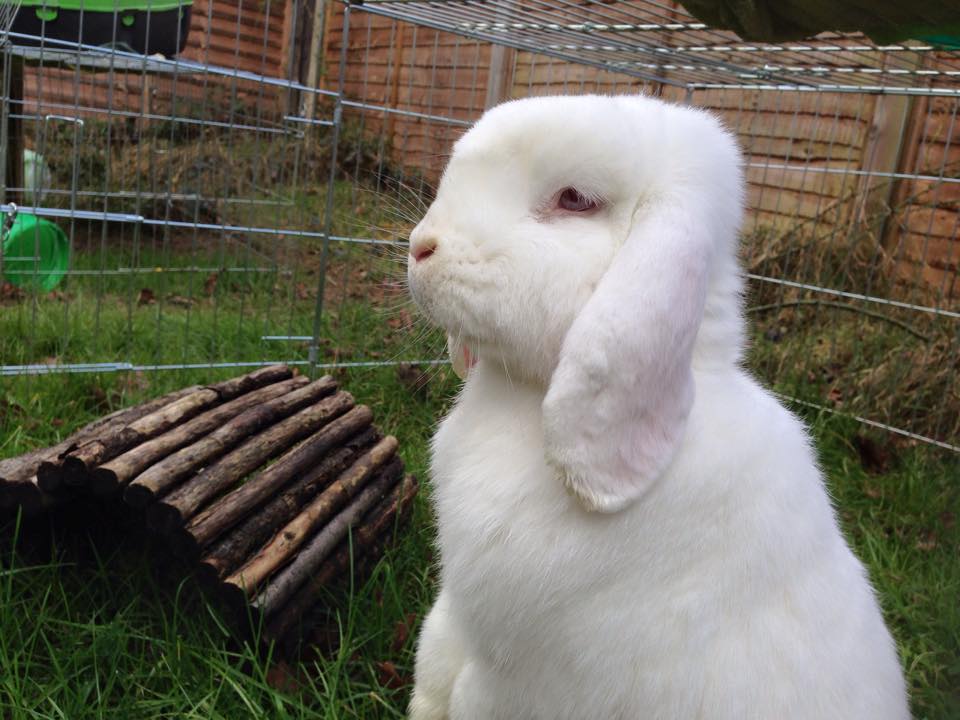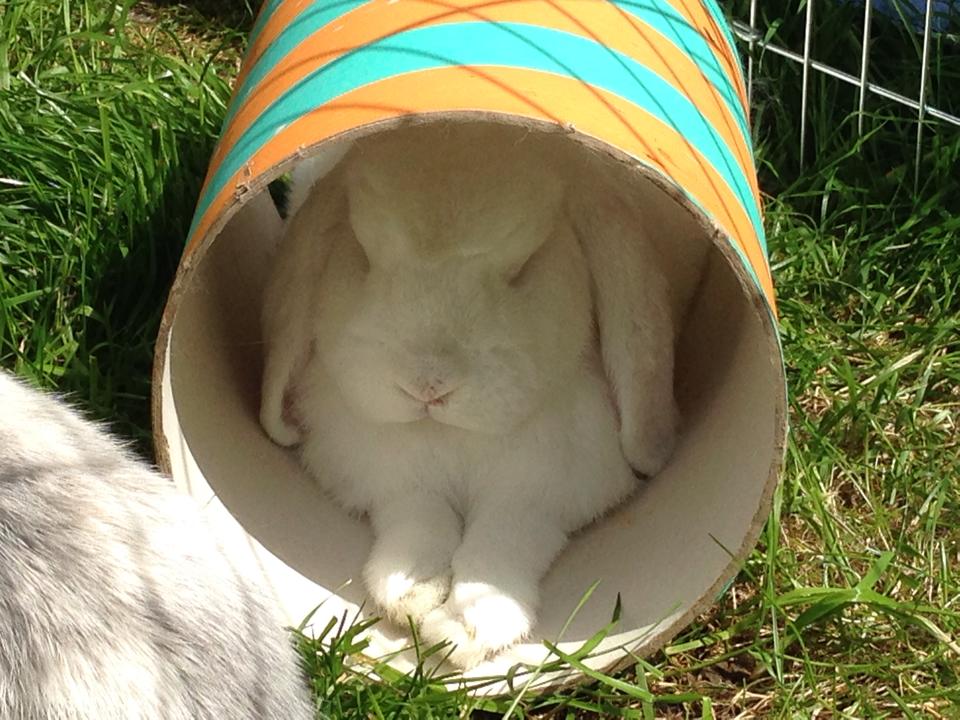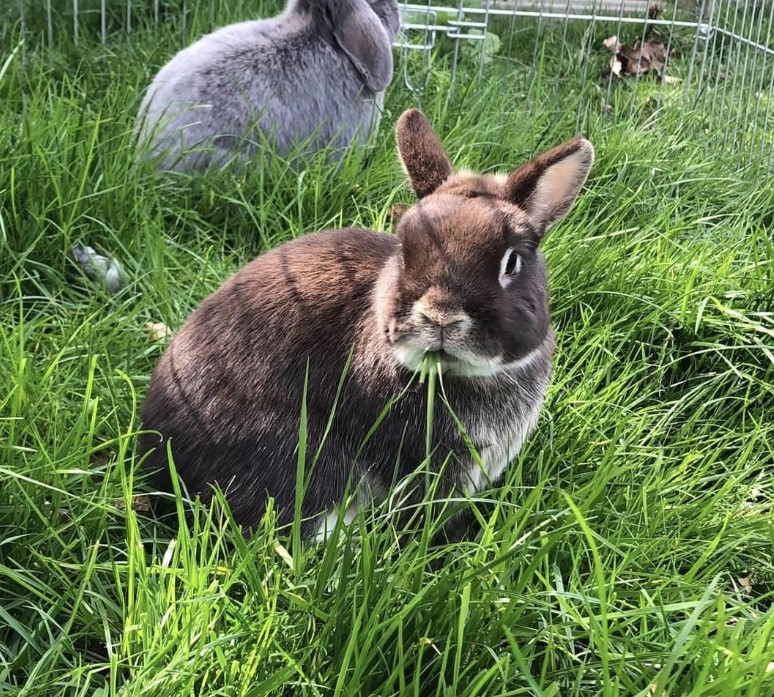Rabbits are a prey species. Because of this, they have evolved in a way to hide any symptoms of illness and pain so they are not taken by a predator. If you keep rabbits, spotting any sign of discomfort early increases the chance of their survival. Get in the habit of giving your rabbit a health check regularly. Here are the top things you should look out for.
Lethargy
You know your rabbit better than anyone, so any change in their behaviour should be investigated as rabbits can go downhill very quickly. If your rabbit is usually very active and seems quiet, something may be wrong. I’m sure you have your own routine with your bunnies – should your rabbits always hop over to you if you walk past their run, or come over to you when you open their hutch and now don’t, this could be an early indication that something is wrong.
Things to look out for are;
- Hunched up in the corner
- Fur standing on end
- No reaction/little reaction when you approach
- Cold to the touch
Off their food
Unlike us, rabbits need food constantly going through their digestive system and if they don’t they can go into something called Gut Stasis which is a medical emergency. Every bunny is different, which is why it’s good to spend lots of time with your rabbits getting to know them so you can notice any changes early.
Rabbits should have access to good quality hay at all times, as well as a good quality pellet food (Burgess Excel and Science Selective are very good) and a small number of vegetables a day (click here for a list of safe foods for rabbits). New foods should be introduced slowly, never suddenly change a rabbit’s diet.
Rabbits teeth continually grow throughout their lives. Sometimes, the teeth grow in the wrong direction or too long (this is called malocclusion). The cause of this can be down to a number of reasons from incorrect diet to the breed of your rabbit. Humans have bred rabbits to have shorter faces because they look cute, but this means their whole dental anatomy has been squashed, making them more prone to dental issues. Breeds that are prone to dental issues include Netherland dwarfs and Mini lops. Not only can the front teeth grow too long, but the back teeth can also develop spurs which can cut the cheeks and tongue causing a lot of pain.
If you have more than one rabbit, make sure both rabbits are eating. Signs that something could be wrong are;
- No interest in any food (look for the bowl or hay rack staying full)
- Picking up food and dropping it
- Drooling
- Reduced/less poo in their hutch – or the poo being a different shape or colour
- Extremely long front teeth can begin to protrude from the mouth.
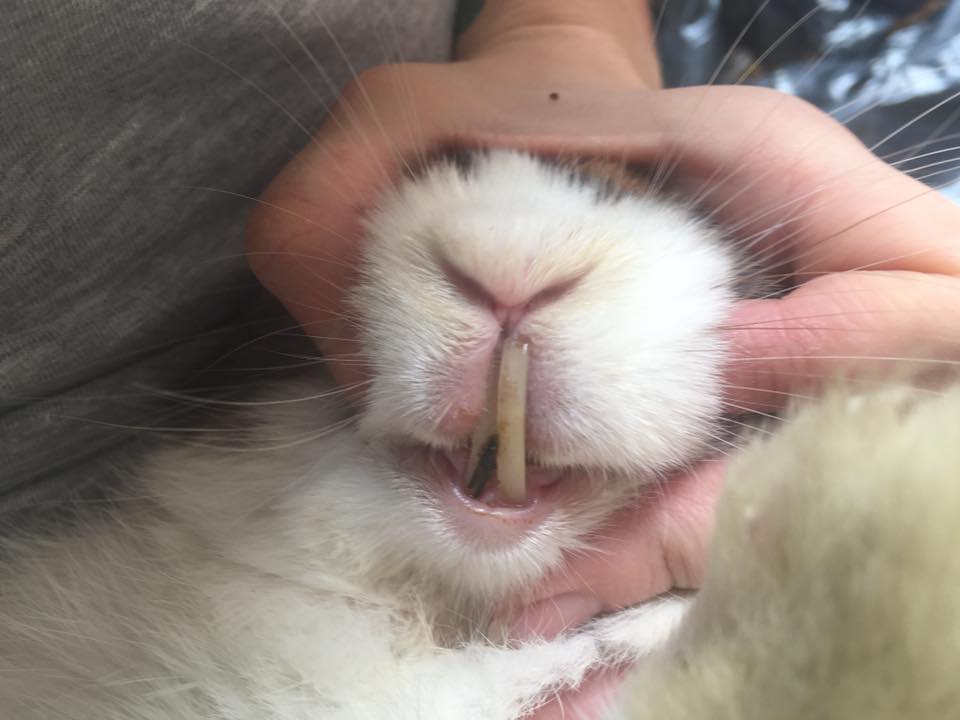
Change in poo
As we have learnt earlier, rabbits need food passing through their system all the time, which of course means bunnies produce lots of poop! Rabbits actually produce two types of poop – there is a soft one called caecotrophs which are usually made overnight and your bunny should eat them straight from their back passage to redigest the goodness within them. They also produce a round type (looks like Nesquick cereal). Changes in either type of poop can indicate an issue. Things to look out for are;
- Caecetrophs stuck around the back end – this can cause flystrike which is deadly. If your rabbit regularly has a messy back end, they will need to see a vet.
- Lack of the round type of poop – either less than the usual amount or none at all.
- Change in appearance of the round type – they should be golden brown in colour and fairly big. Any small, misshaped or dark coloured poo should be noted.
Change in urine
Rabbit urine can come in a range of colours and sometimes look alarming. If your rabbit has eaten a new type of vegetables (particularly kale), it can cause the urine to go a dark red in colour which is normal, however, things to look out for are;
- Less urine being produced than normal
- Bright red urine could indicate blood
- Urine marks on your rabbits back legs or around their bottom. It can also sometimes be on their tummy. This can lead to urine scald which is painful.
Tooth grinding
A rabbit in pain will grind their teeth. This is usually accompanied by a hunched up rabbit (see lethargy) but not always. To make it a little more confusing, a happy or contented rabbit will purr which can sound similar to tooth grinding to the untrained ear. Tooth grinding is usually much louder than a purr and the rabbit will usually be off of their food also. This is why it is so important to get to know your rabbits so you will be able to distinguish between the sounds.
Runny eyes
Any discharge from the eyes could indicate an issue. Sometimes the nose can run too depending on the problem. Runny eyes could be anything from an eye infection, myxomatosis and even an indicator to dental issues. Keep a lookout for;
- Clear discharge
- Milky discharge
- Nasal discharge
- Crust around eyes
- Changes in the fur around the eye. This can be subtle to begin with.
- Bloodshot eyes
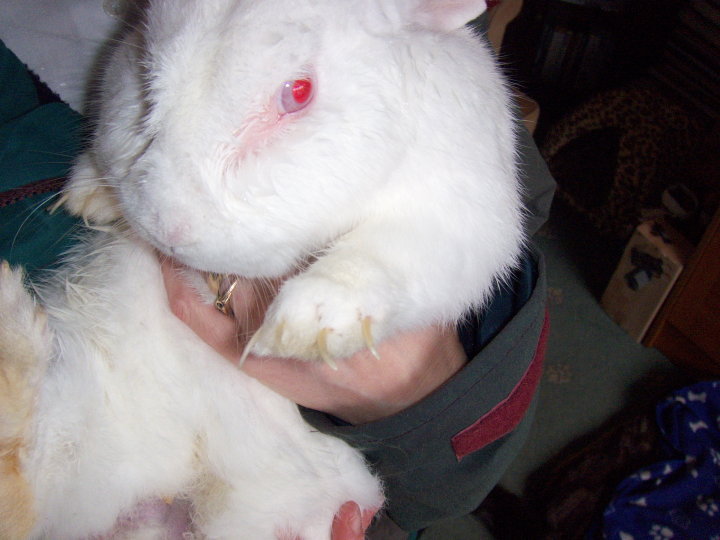
Head tilt
Head tilt can be subtle or dramatic depending on the cause. Lots of things can cause head tilt, from E. cuniculi (Encephalitozoon cuniculi) which are a parasite, to an inner ear infection and even a stroke. There is no way of knowing the cause without consulting your vet. Other symptoms to look out for are;
- Walking in circles
- Loss of balance
- Itchy ears
- Flickering eyes
- Rolling over
- The third eyelid pulled across
- Tremors
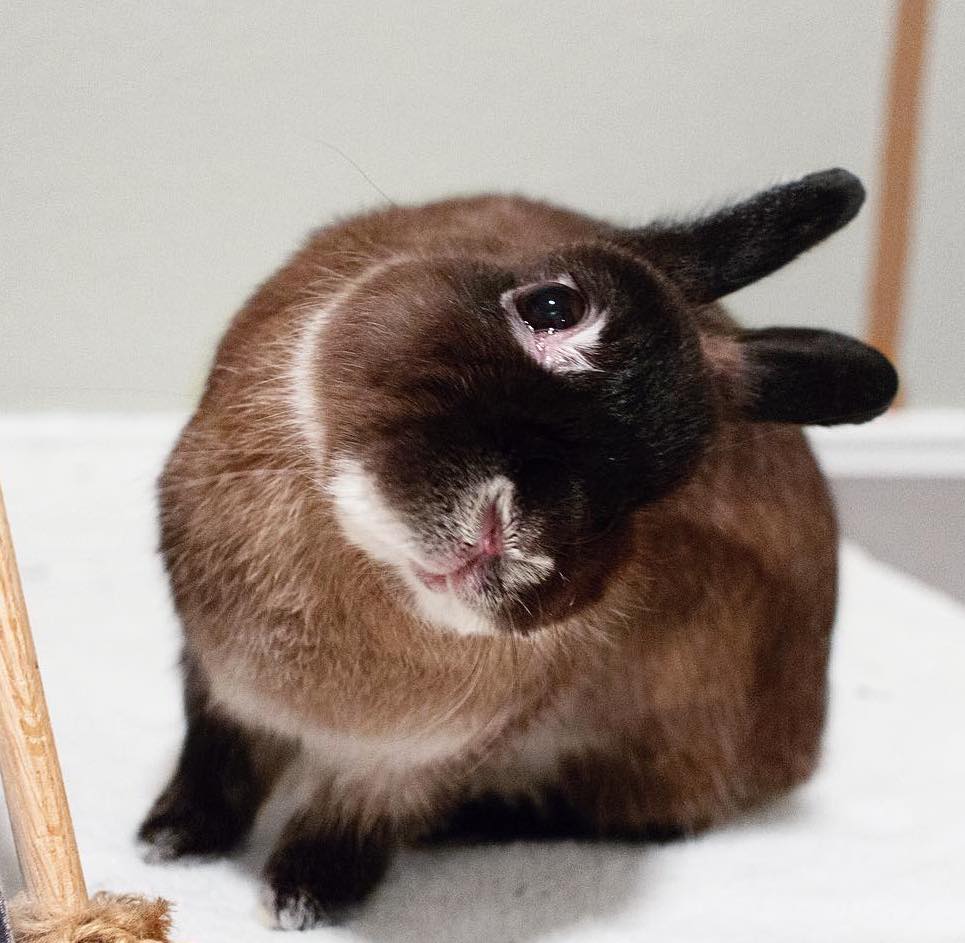
Difficulty breathing
Like us, a rabbit’s respiration rate will change depending on what they are doing. A relaxed bunny will have a slower breathing rate than a rabbit who is hopping around for example. Be on the lookout for;
- Fast breathing when at rest
- Laboured breathing
- Discharge around the nose or eyes
- Rattling noises
- Sneezing
Flystrike
Fly strike can kill rabbits very quickly. Click here to find out more.
This blog has been written to help you notice any changes in your rabbit’s behaviour. Any symptoms or concerns should be directed to a Veterinary Surgeon. This blog is not to replace any Veterinary advice.
Need more Rabbit care advice? Take a look at the 10 Things You Need To Know About Owning Rabbits.
Have you thought about making a rabbit first aid kit? Here is everything you should include.

